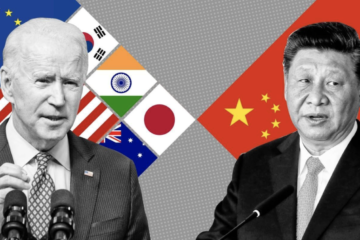As Sri Lanka moves into a new era of government, with the United National Party (UNP) defeated in the polls and Gotabaya Rajapaksa winning the presidency by a majority, it is important to consider the historical implication of this and the impact that this may have on Sri Lanka’s future political landscape.
Beginning in 1983, Sri Lanka was ravaged by a civil war that lasted for 26 years, ending in 2009 with the surrender of the LTTE (Liberation Tigers of Tamil Eelam) to the Sinhalese Sri Lankan government. The LTTE was formed initially to fight for the oppressed Tamil people but were increasingly viewed as a threat to the country by the government, and by the Sinhalese people as well. This extensive war ended with the government rounding up the surviving Tamil people and forcing them into detention centres. They were then systematically interrogated by the government officials about their connections to the LTTE through torture, including sexual assault and rape. Following this, they would either be thrown back into the camp to deal with the horrific assault that they experienced or would disappear forever.
After people were released from the camps, there were still reports of ‘white vanning’ which consisted of people being kidnapped in white vans by and being taken away to be tortured for information, after which some people would return and others would not. This is strongly believed to be perpetrated by the government and was a feature that continued on from the previous government under President Mahindra Rajapaksa to the following UNP government. Accusations of torture by both Tamil and Sinhalese people have continued up until now, indicating that this is a systematic issue of the Sri Lankan government as opposed to issues with individual leaders or parties. The pervasiveness of kidnapping and torture have allowed it to become a legitimate form of political power, and act further as a way to silence those who oppose the government.
Yet, although the nature of the problem is systematic, it is likely to become much worse under the presidency of Gotabaya Rajapaksa. The current president is most well known for his position as Secretary of Defence under his brother, ex-President Mahindra Rajapaksa, during which he was instrumental in the ending of the civil war. He was also instrumental in ordering the mass torture of Tamil men and women and was being sued in the United States over this prior to his presidential victory on November 16th. Unfortunately, as Sri Lankan presidents have immunity, the court case had to be terminated.
While his winning of the elections was not a surprise, considering that he was polling much higher than his other 34 competitors during the election period, it increases the pre-existing tensions of the country which have been high since the Easter Sunday Bombings in Colombo on the 21st of April 2019 and caused the re-surfacing of old tensions from the civil war. In fact, a key aspect of Rajapaksa’s campaign focused on his plans for bettering state security and surveillance, pointing out the Easter Sunday Bombings as an example of how the state should be harsher on crime. Considering Sri Lanka’s history with ethnic minorities, and the fact that Sri Lankan Muslims are a prominent minority, alongside Tamils, it is easy to see the worry that people have for the new political climate in the county. It is not difficult to see how Rajapaksa’s nationalistic Sinhalese-Buddhist rhetoric could lead to greater ethnic and religious divides in the country, resulting in greater oppression of minorities in the country. If he is anything like his brother, it is likely that freedom of the press and political opinion will also diminish as the country sinks back into a more authoritarian government.
Yet, possibly the most difficult part of this event, is that it is now incredibly unlikely that Gotabaya Rajapaksa will ever be held accountable for his actions as Secretary of Defence. More than 10 Tamil people and 2 Sinhalese men were willing to testify that this man was behind their torture, and it can be assumed that there are many more people out there who were also his victims, who are now unable to get the justice they deserve because of his immunity as president. Even worse is that considering the western world’s fear of China as a growing superpower, and China’s relations with Sri Lanka, it is unlikely that the international community will choose to hold him accountable for his crimes. As countries attempt to tighten the bond between the west and Sri Lanka, the men and women who were victims of his heinous crimes against his own people have no choice but to wait for the justice that they deserve.


